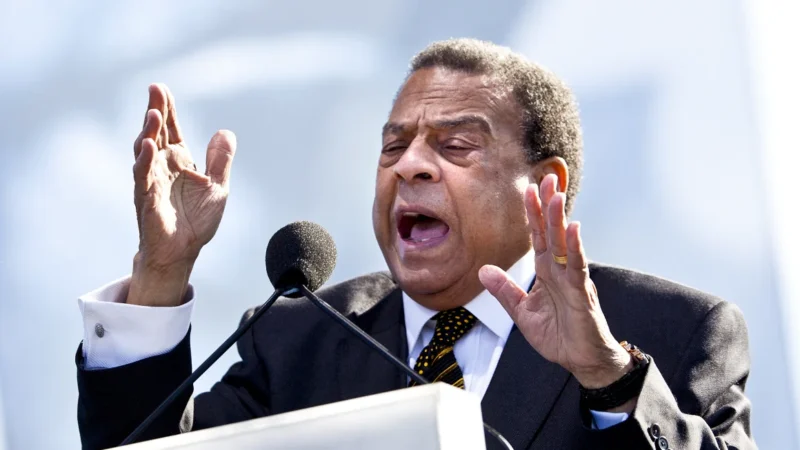Civil Rights Icon Andrew Young Reflects On Dr. Martin Luther King Jr.’s Legacy And America’s Progress On MLK Day
Share
Explore Our Galleries
Breaking News!
Today's news and culture by Black and other reporters in the Black and mainstream media.
Ways to Support ABHM?
From The Seattle Medium

As the nation commemorates Dr. Martin Luther King Jr. Day, civil rights icon, diplomat, and former Atlanta mayor Andrew Young reflected on King’s legacy and progress in America since the 1960s.
One of the last surviving members of King’s inner circle, Young, sat down for an exclusive interview on PBS-TV’s The Chavis Chronicles with National Newspaper Publishers Association President and CEO Dr. Benjamin F. Chavis Jr., where he shared valuable insights into his historical journey as a leader of the civil rights movement and his own enduring legacy.
“I do this,” Young said, reflecting on challenging injustices like the false arrest and imprisonment of the Wilmington Ten in the 1970s, “because it’s the right thing to do. I wasn’t being militant or outspoken I was trying to get people to see just what it is.”
[…]
Reflecting on his experiences, Young shares poignant moments during the interview, including facing violence during the Civil Rights movement. He recalls, “When the Klan came marching down in the community, they wanted to provoke a fight. They had guns under their sheets in Lincolnville, Florida,” he noted. “The same Black folks who got beat up with me said they had the love of Jesus in their hearts; that spiritual witness of nonviolence and forgiveness moved the Congress, and the next week they passed the 1964 Civil Rights Act.”
Learn about another important figure in the Civil Rights Era in this virtual exhibit.
FInd more Breaking News here.









Comments Are Welcome
Note: We moderate submissions in order to create a space for meaningful dialogue, a space where museum visitors – adults and youth –– can exchange informed, thoughtful, and relevant comments that add value to our exhibits.
Racial slurs, personal attacks, obscenity, profanity, and SHOUTING do not meet the above standard. Such comments are posted in the exhibit Hateful Speech. Commercial promotions, impersonations, and incoherent comments likewise fail to meet our goals, so will not be posted. Submissions longer than 120 words will be shortened.
See our full Comments Policy here.